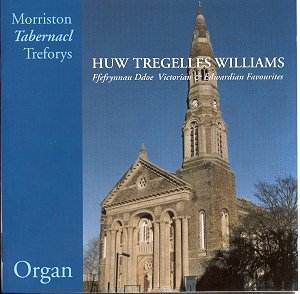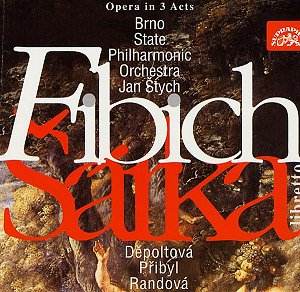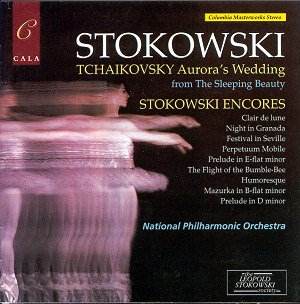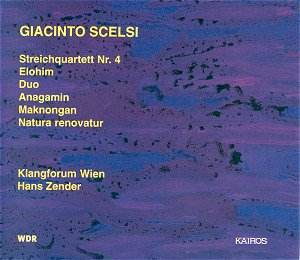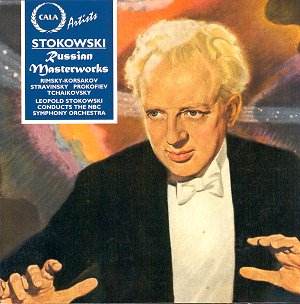 Composer: Leopold Stokowski
Composer: Leopold Stokowski
Works: Rimsky-Korsakov: Russian Easter Festival Overture, Tchaikovsky: Humoresque Op. 10 No. 2, Stravinsky: The Firebird Suite (1919 version), Prokofiev: March from The Love for Three Oranges Op. 33a, Tchaikovsky: Symphony No. 4
Performers: NBC Symphony Orchestra
Recording: 1941-42, Studio 8-H and Cosmopolitan Opera House
Label: Cala CACD 0505
The recordings of Leopold Stokowski with the NBC Symphony Orchestra during the early 1940s exemplify an era of rich interpretive tradition in American orchestral music. Stokowski, a figure who thrived on the cusp of modernity and tradition, offers a compelling window into a series of Russian masterworks that are as much about the orchestral color as they are about the original scores. This collection features the likes of Rimsky-Korsakov, Tchaikovsky, Stravinsky, and Prokofiev, all of whom present distinct challenges and opportunities for a conductor of Stokowski’s stature.
The “Russian Easter Festival Overture” by Rimsky-Korsakov opens with a bracing vigor that sets the stage for Stokowski’s interpretations. His decision to replace the traditional trombone solo representing the priest’s chant with a baritone soloist, Nicola Moscona, is both bold and controversial. While it undeniably adds a different tonal color to the piece, it raises questions about fidelity to the score and the composer’s intentions. Nonetheless, the performance crackles with energy, and Stokowski’s expansive approach to orchestral dynamics evokes the visceral drama inherent in Rimsky-Korsakov’s writing. The brass section’s robust sound, resonating with Slavic fervor, is particularly noteworthy and aligns well with Stokowski’s stylistic tendencies.
Tchaikovsky’s “Humoresque” is given a winning treatment, executed with a light touch that allows the charming whimsy of the work to shine through. Stokowski’s orchestration choices here feel both affectionate and playful, showcasing the NBC Symphony’s ability to convey the piece’s nuanced emotional landscape. In contrast, the Prokofiev “March” feels a bit underwhelming; it lacks the subtleties that might elevate its character, suggesting a certain reluctance to embrace Prokofiev’s inherent complexity.
The centerpiece of this collection, Stravinsky’s “Firebird Suite,” reveals Stokowski’s duality as an interpreter. His relationship with this work is complex; the lush, lyrical moments—especially in the Berceuse—border on sentimental, leading one to question where Stokowski’s interpretive voice ends and Stravinsky’s begins. The “Infernal Dance” is undeniably frenetic, though it occasionally teeters on the brink of chaos, suggesting a conductor who revels in the raw energy of the piece rather than its structural integrity. This performance may not satisfy purists, but it is undeniably striking in its vividness and emotional investment.
Tchaikovsky’s Symphony No. 4 concludes the program, and here, Stokowski’s interpretive choices become more pronounced. He employs significant tempo modifications and expressive portamentos that, while undeniably captivating, can lead to a sense of unease regarding the overall coherence of the work. The famously tumultuous finale, trimmed by eight bars, illustrates Stokowski’s penchant for dramatic pacing, though it may feel excessive to those who prefer a more traditional approach. The orchestra’s execution is, however, commendable, with an impressive depth of sound that enhances the emotional weight of the music.
The sound quality of this remastered collection shows both the strengths and limitations of the original recordings. While the engineering captures the grandeur of Stokowski’s performances, the less-than-ideal source material occasionally detracts from the overall listening experience. Despite these challenges, the meticulous remastering allows for a clearer appreciation of orchestral textures.
The collection presents Stokowski at a pivotal moment in his career, revealing an artist engaged in the exploration of rich orchestral colors and expressive potential. His interpretations, while at times controversial, are always marked by a distinct personality and an adventurous spirit. For those who appreciate the lush, dramatic style of Stokowski, this disc is a fascinating documentation of his symphonic prowess, although it may not serve as the definitive reference for each of the works presented.
